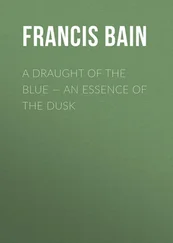Конец ознакомительного фрагмента.
Текст предоставлен ООО «ЛитРес».
Прочитайте эту книгу целиком, купив полную легальную версию на ЛитРес.
Безопасно оплатить книгу можно банковской картой Visa, MasterCard, Maestro, со счета мобильного телефона, с платежного терминала, в салоне МТС или Связной, через PayPal, WebMoney, Яндекс.Деньги, QIWI Кошелек, бонусными картами или другим удобным Вам способом.
The old argument: there is immorality in the stones of the gods; ergo , the men must be the same, is a monotheist calumny. Books like Kingsley's Roman and Teuton , where all the vice is imputed to the Roman, and all the virtue to the Teuton, are merely an inversion of the fact. "The truth is," says Professor Lewis Campbell on Æschylus, "that while religious custom lay upon the Greeks with a weight almost as deep as life, the changing clouds of mythology rested lightly on their minds, and were in their very nature, to some extent, the sport of fancy and imagination." This is equally true of the Hindoos.
The dictum of Mr. Rudyard Kipling, whose India is merely a misrepresented Anglo-India, that there ain't no Ten Commandments there, is superficially a truism, and essentially a foolish libel. No man has done more to caricature and misinterpret India, in the interests of military vulgarity, than this popular writer, to whom Hindoo India is a book with seven seals.
The observations of Mr. Theophilus G. Pinches, on the means by which, in ancient Babylon, "an enlightened monotheism and the grossest polytheism could, and did, exist side by side," apply accurately to India. ( The Old Testament in the Light of the Historical Records of Assyria and Babylonia , p. 10.)
Olymp. vii.
Apud Bocharti Phaleg . p. 184.
James Mill's criticism of the Indian ethic is a criminal offence, a sin against literature. The coryphæus of the Inductive Philosophy, dogmatising on a language of which he could not even read a single word!
i. e. Maheshwara.
That is, so as to touch the ground with all eight parts of the body at once.
Legendary dwarfs. Agastya was a very little man.
i. e. an animal, a brute; a synonym for the absence of all culture and intelligence.
The Lord of Animals, i. e. Shiwa, is the ascetic par excellence .
i. e. an ocean of thirst. This thirst, trishá , is the technical name for what Schopenhauer calls the will to live ( vitai semper hiantes ).
Watsa is a term of endearment, equivalent to our "darling"; the whole word means "a heifer." [Pronounce each a like the u in hut.]
i. e. Krishna; who solved Plato's old difficulty of the One and the Many, by "keeping company" with each of his love-sick milkmaids at once.
Sthiti , the established world-order, is one of the three terms of the universe, as opposed to sarga , its creation, and pralaya , its destruction and end.
The smashána is rather a burning-ground than a cemetery. But it is often called pitrigriha – "the home of the fathers," and thus cemetery may stand, as an equivalent.
i. e. goblins and vampires.
Maheshwara, who is speaking, wears a necklace of skulls.
i. e. a naked mendicant ascetic.
Nemo potest supra seipsum , said the Schoolmen – a profound observation exactly in harmony with old Hindoo ideas on moral force.
i. e. Indra. Mátali is his messenger, the Hindoo Mercury.
This singular idea, familiar now to Europe, in the form of the prayer-wheels of Tibet, is not wholly without parallels in the West. The only difference is, that the Hindoos are a very logical people, and carry the absurd to its extreme.
The wife of the sage Gautama, with whom Indra had an intrigue that covered him with shame, in more ways than one.
Chaturmukha .
i. e. Maheshwara himself, who burned Love with fire from his eye.
Max Müller, to whom students of the Rig-Weda owe so much, was nevertheless essentially mistaken in saying that the word weda means knowledge . It does not mean knowledge, in our sense of the word, scientific, Baconian, Aristotelian; an idea quite alien to that of the old hotris . By weda they meant magical knowledge , spells ; which being sung or muttered had power to compel the deities: thus the Brahman who possessed the "knowledge" (in the phrase of the Brahmanas, yah ewam weda ) was the master of the world.
i. e. the dark half of the lunar month.
There is a pun in her name, which as applied to the moon, means a store of digits , but also signifies an ocean of wiles .












